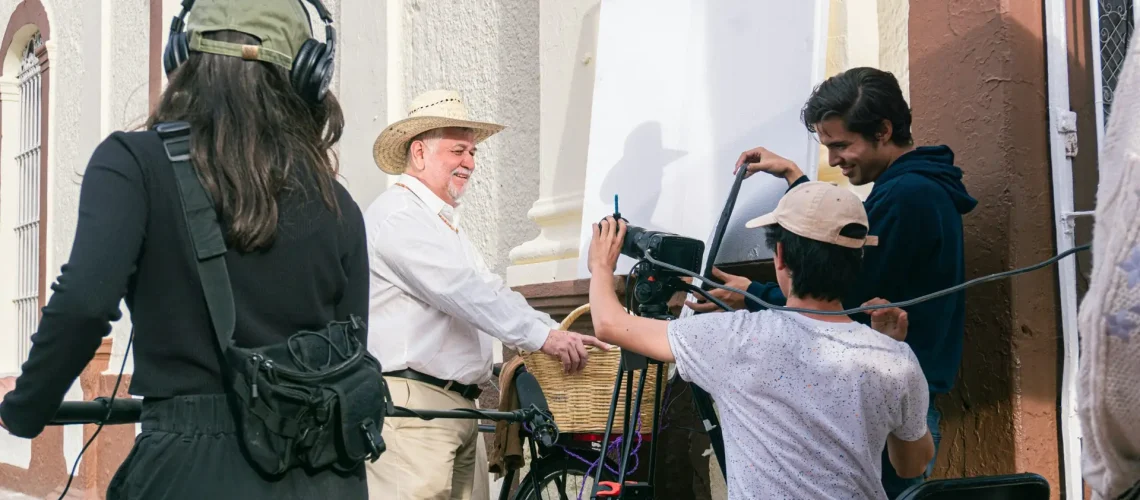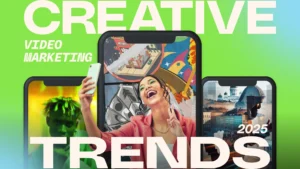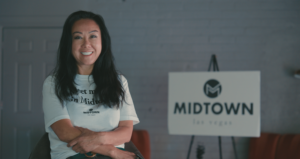In commercial production, bringing a brand’s message to life requires vision and precision. As a producer, I’ve seen how storyboarding, planning, and collaboration can make or break a project. A storyboard is the blueprint, guiding each scene to ensure the story aligns with the brand’s goals and resonates with the audience.
At HUSTL Media, a leading video production company in Las Vegas, we prioritize storyboarding as the foundation of the entire production. Whether it’s a thirty-second ad or a corporate video, our storyboards capture the essence of your message while providing structure to each shot. Let’s explore why storyboarding is crucial and how we bring your vision to life in Las Vegas video productions and film production in Las Vegas.
Understanding the Producer’s Role
In commercial productions, a producer is much more than just a project manager—they’re the ones who bridge the gap between a brand’s vision and the final polished product. From brainstorming initial concepts to overseeing post-production, the producer ensures the project stays on track in every way:
Vision Management: Producers work closely with clients to understand their goals, crafting a clear vision for the project.
Budgeting and Scheduling: Time and resources are always in limited supply. Producers make sure the production stays within budget and schedule without compromising quality.
Team Coordination: From directors to set designers, producers manage the crew, ensuring that everyone is aligned with the project’s goals.
Here at HUSTL Media, our producers focus on creating a seamless workflow, from the initial storyboard sketches to the last shot on set, guaranteeing that each project not only meets but exceeds client expectations.
The Importance of Storyboarding
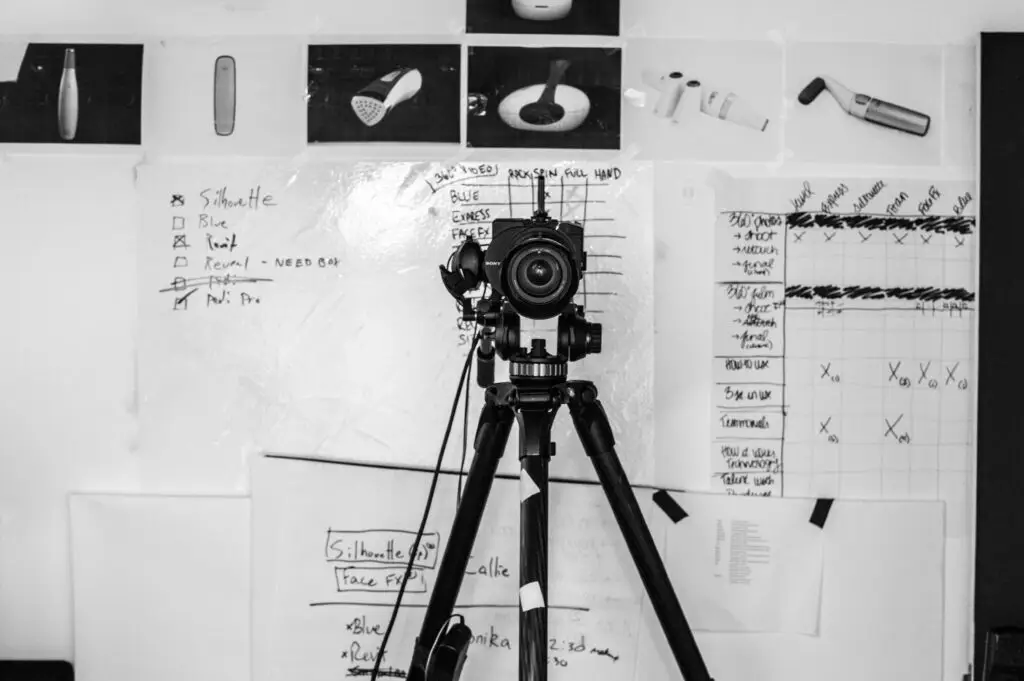
Storyboarding is the first concrete step in transforming an idea into reality. It’s a visual script—a sequence of images or sketches that outline every moment of the production. Think of it as a roadmap, helping to visualize the narrative, organize each scene, and identify necessary shots. A well-crafted storyboard offers several benefits:
Clarity: It makes the vision clear for everyone involved, from the client to the crew, ensuring that everyone understands the project’s direction.
Efficiency: Storyboards help avoid wasted time by laying out each shot and camera angle, allowing the crew to prepare effectively.
Engagement: By planning out how each scene flows into the next, a storyboard helps keep the audience’s attention, ensuring a cohesive and compelling final product.
At HUSTL Media, we use storyboarding to define the heart of the message, making sure that every second counts toward telling a story that resonates with the audience.
Steps to Crafting a Compelling Storyboard
Creating a storyboard that captures both brand essence and visual appeal is an art in itself. Here’s how we approach it:
Brainstorming Ideas: First, we discuss creative concepts, exploring themes, messaging, and visual elements. This collaborative process involves both the client and the creative team to ensure we’re capturing the right vision.
Sketching Scenes: Each frame is carefully sketched, representing a specific moment in the video. This allows us to visualize camera angles, lighting, and set design well before the shoot.
Organizing the Story Flow: A good storyboard considers how scenes transition and build toward the final message. By structuring the narrative, we make sure that the story unfolds in a way that keeps viewers engaged and reinforces the brand’s message.
Our approach to storyboarding at HUSTL Media combines creativity with strategy, ensuring that every scene serves a purpose and aligns with the overall vision.
Collaborating with Creative Teams for Storyboarding
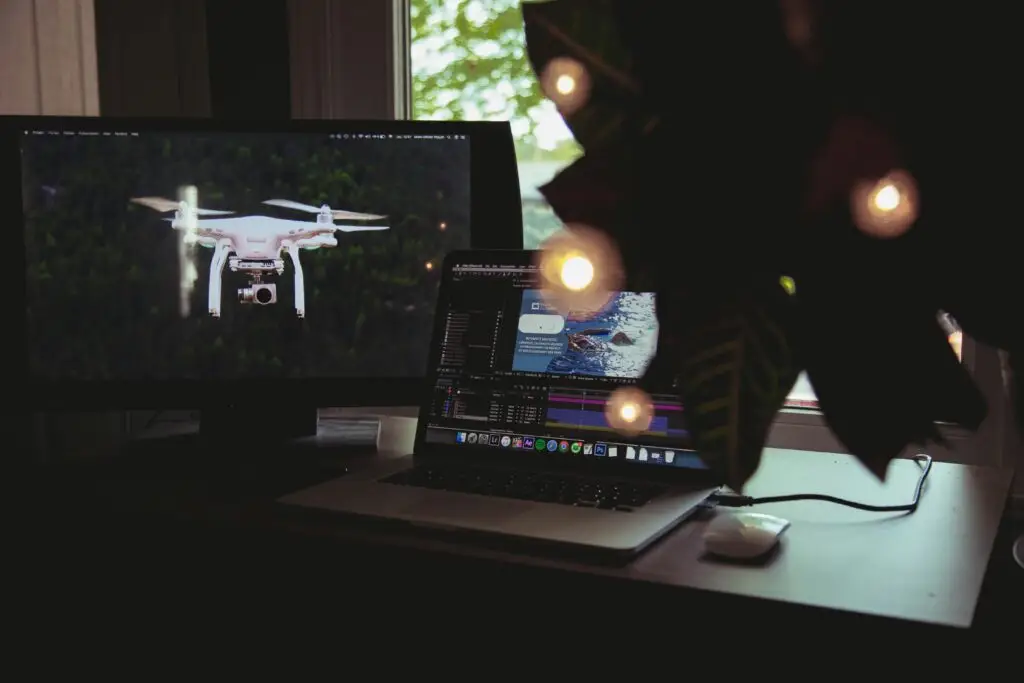
Effective storyboarding relies heavily on teamwork. As producers, we act as liaisons between the client, director, and creative team to ensure that everyone is on the same page. During storyboarding:
Producers Oversee: We make sure that each element aligns with the client’s vision and meets the project’s technical needs.
Directors Add Visual Expertise: Directors offer their insights on how to translate the storyboard into shots that look visually striking and meaningful.
Designers and Writers Contribute Details: Set designers, writers, and other creatives provide input on everything from props and lighting to character actions.
At HUSTL Media, we emphasize open communication, fostering an environment where creative collaboration flourishes. The result? Innovative ideas that strengthen the final production.
Incorporating Feedback and Revisions
No storyboard is perfect on the first draft. We consider it a living document, open to changes and improvements. Receiving feedback early on is essential to avoid costly changes later in the process:
Client Feedback: We work closely with clients to incorporate their feedback and make revisions, ensuring the storyboard aligns with their vision and branding.
Creative Adjustments: Directors and crew might suggest tweaks to improve pacing or visual appeal, leading to a more polished storyboard.
Iterative Process: By embracing revisions, we refine the storyboard until it’s an accurate representation of the final product.
This collaborative and flexible approach allows HUSTL Media to create a storyboard that satisfies all stakeholders and sets the production up for success.
The Role of Technology in Storyboarding
Modern technology has revolutionized storyboarding, making it easier to collaborate and adjust in real time. At HUSTL Media, we use various tools to enhance our storyboarding process:
Digital Storyboarding Software: Platforms like Storyboard Pro allow us to create, adjust, and share boards easily, even adding notes and scene transitions directly on the visuals.
3D Visualization: For complex scenes, we can create 3D mock-ups to visualize camera angles and movements, giving us a precise sense of how the final product will look.
Cloud-Based Sharing: With cloud technology, storyboards are accessible to everyone involved, facilitating real-time collaboration and feedback.
These tools empower our team to work efficiently and creatively, resulting in a storyboard that’s both visually rich and technically sound.
Why Choose HUSTL Media for Your Production Needs
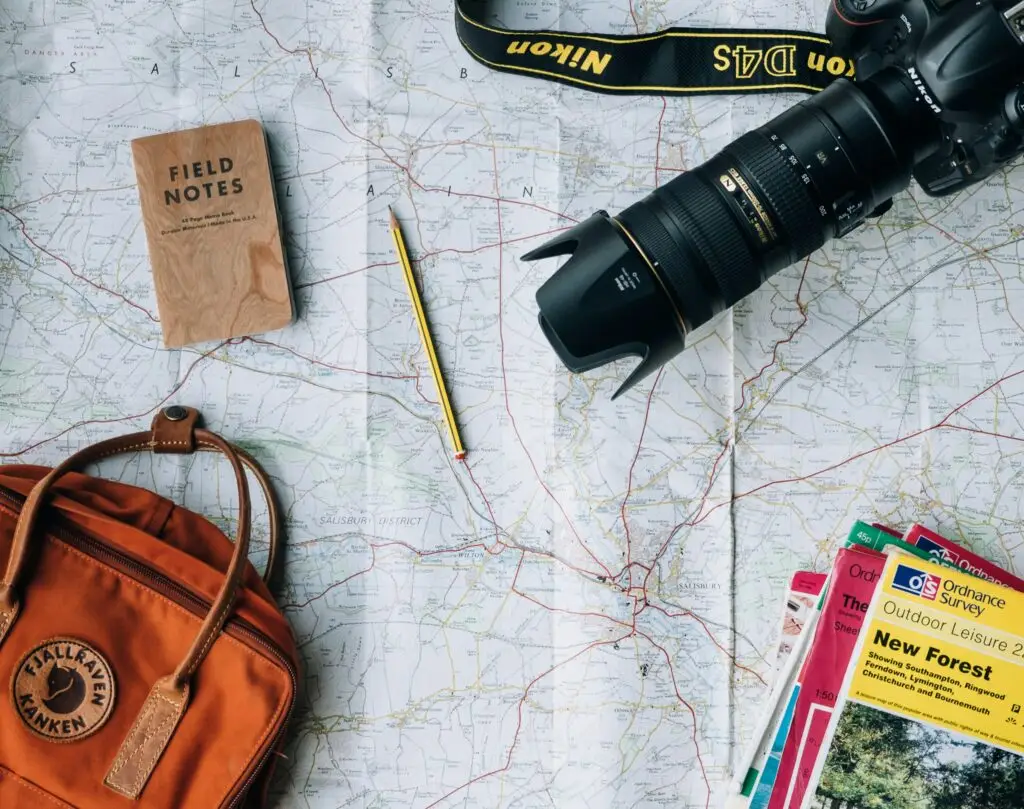
At HUSTL Media, we’re passionate about turning ideas into impactful stories. We understand that a strong storyboard is the foundation for any successful production, and our producers go above and beyond to ensure every detail is perfect. When you work with us, you get:
A Collaborative Team: We’re dedicated to understanding your brand and working closely with you to bring your vision to life.
Cutting-Edge Techniques: We utilize the latest technology to streamline storyboarding and create visually compelling scenes.
Proven Expertise: With a track record of successful projects, we know how to craft commercials that resonate and drive results.
With HUSTL Media, your vision is in expert hands. We’re here to make sure your message is not only heard but remembered.
Conclusion
Storyboarding is a crucial step in commercial production, ensuring a seamless and impactful final product. With a skilled producer, storyboarding aligns the team, strengthens the narrative, and enhances audience connection. At HUSTL Media, a top video production company in Las Vegas, we craft storyboards that bring your vision to life, making sure every scene tells a compelling story. Whether for Las Vegas video productions or video production in Las Vegas, we ensure each project leaves a lasting impression.
FAQs
Q: What is a storyboard in video production?
A storyboard is a visual plan that outlines each scene in a video, helping to visualize the story and organize shots before filming.
Q: Why is storyboarding important in commercial production?
Storyboarding provides clarity, improves efficiency, and ensures that the final product aligns with the brand’s message.
Q: How does technology aid in storyboarding?
Digital tools like Storyboard Pro and 3D visualization make it easier to create, adjust, and share storyboards, facilitating real-time collaboration.
Q: What role does a producer play in storyboarding?
Producers oversee the storyboarding process, ensuring it aligns with the project’s goals, budget, and timeline while facilitating collaboration among the creative team.
Let HUSTL Media help you bring your story to life with an expertly crafted storyboard and top-notch production.
To book our services, kindly send us an email at Art@HUSTLMedia.com or directly call us at (702) 980 -9620. You may also learn more about us and our campaigns by visiting our website – HUSTL Media.

